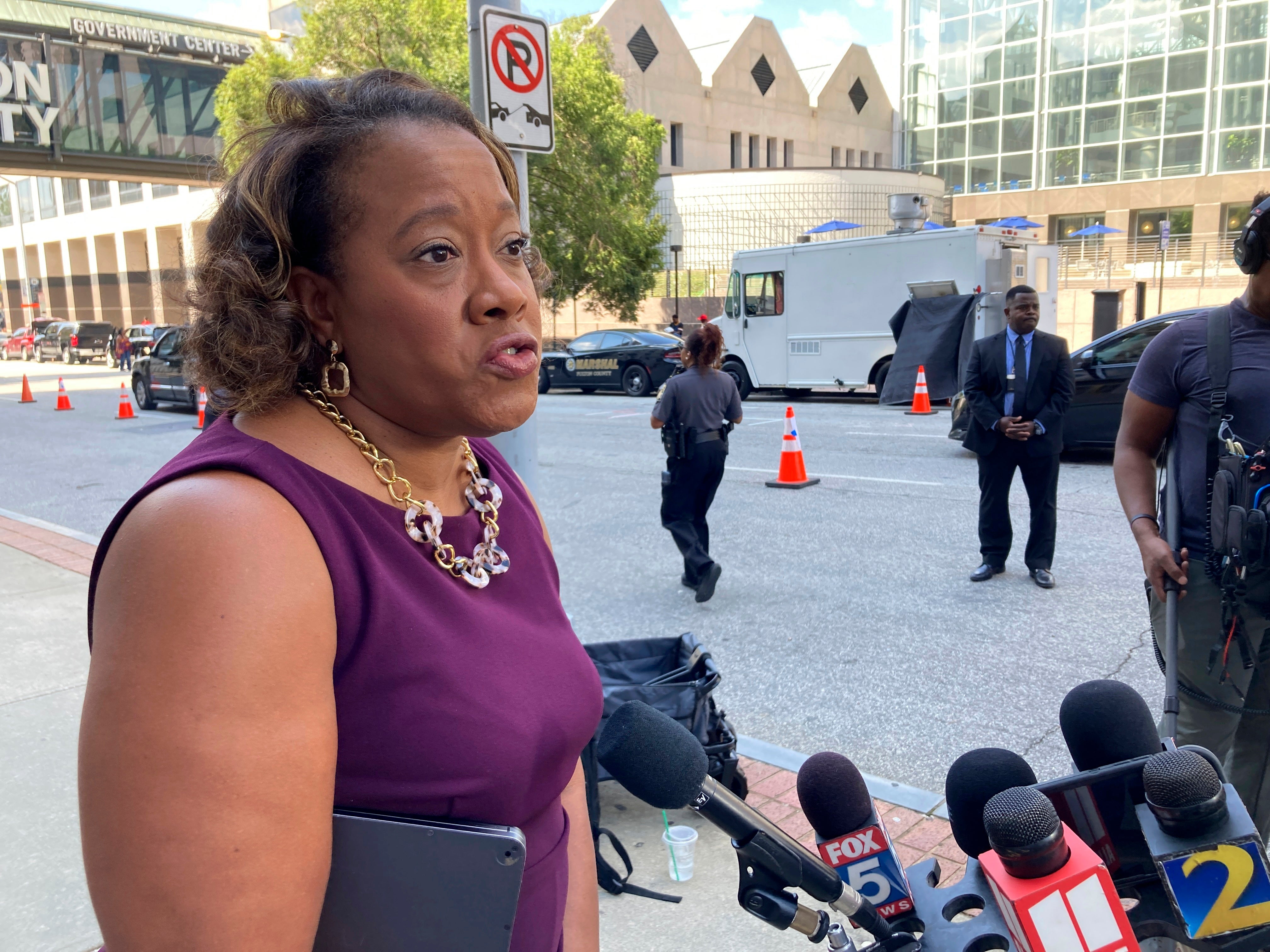Judge questions Georgia prosecutors' effort to freeze a new law that could weaken their authority
A judge is expressing skepticism at demands to freeze a new Georgia law that could discipline and remove state prosecutors

A judge expressed skepticism Friday at demands to freeze a new Georgia law creating a commission to discipline and remove state prosecutors.
Some Republicans want the new commission to discipline or remove Fulton County District Attorney Fani Willis for winning indictments of former President Donald Trump and 18 others.
That's in part a way to evade demands from some Republicans that lawmakers call themselves into special session to attack Willis. Republican Gov. Brian Kemp has rejected both a special session and the notion that Willis has done anything that merits sanctions from the new commission, although he supported the law, saying when he signed it that it would curb “far-left prosecutors” who are “making our communities less safe.”
The case argued Friday predates the indictments Willis won in August, with four district attorneys attacking the law as an unconstitutional limitation of their discretion over which prosecutions to pursue and what they can say about their cases. Willis is not one of the plaintiffs in the suit, although she opposed the law.
Josh Rosenthal of the Public Rights Project, a group representing the district attorneys, said prosecutors are already changing their behavior because they're worried about getting investigated. He argued Fulton County Superior Court Judge Paige Reese Whitaker should enjoin the Prosecuting Attorneys Qualification Commission from starting operations.
“As long as there’s a possibility of investigation, plaintiffs are forced to limit their actions," Rosenthal told the judge.
A lawyer for the state argued Georgia lawmakers noted the state constitution expressly says lawmakers can pass laws to discipline or remove district attorneys, and said lawmakers can also define a prosecutor's duties.
“Here, they’re acting well within their constitutional authority to proceed," lawyer Josh Belinfante said, saying Whitaker should reject the district attorneys' claim that the law is an impermissible intrusion by the legislature.
Georgia's law is one in a series of attempts nationwide by Republicans to impose controls on prosecutors they don't like. Republicans have inveighed against progressive prosecutors after some have brought fewer drug possession cases and sought shorter prison sentences, arguing Democrats are coddling criminals.
Missouri Republicans pushed out a prosecutor in St. Louis, while Florida Gov. Ron DeSantis has removed elected Democratic prosecutors in the Tampa and Orlando areas, alleging each had abused prosecutorial discretion.
The Georgia law, too, raises questions about prosecutorial discretion. That bedrock of the American judicial system says a prosecutor decides what criminal charges to seek and how heavy of a sentence to pursue. The Georgia law states a prosecutor can't refuse to prosecute whole categories of crimes, but must instead decide charges case by case. It applies both to district attorneys and elected solicitors general, who prosecute lower-level crimes in some Georgia counties.
In Georgia, some prosecutors have announced they will no longer charge low-level marijuana possession cases. Under questioning from Reese Friday, Belinfante agreed such a policy could spark an investigation. He said prosecutors might be able to defend themselves if they argued they were prioritizing more important crimes or supporting other state or local aims.
“I’m not saying they would be successful,” Belinfante said. “I’m not saying that those defenses will be unsuccessful.”
Those suing say that's an example of how the law creates a bias in favor of prosecution. But Whitaker appeared to adopt the state's arguments that the new act actually creates stronger defenses for discretion than an older section of state law, which requires a district attorney “to prosecute all indictable offenses.”
Georgia law set an Oct. 1 deadline for the commission to start taking complaints, but two members of the commission said in sworn statements last week that the commission can't start operations until the state Supreme Court approves proposed rules. That's unlikely to happen by that deadline.
Its members also said the commission voted Sept. 15 not to investigate any acts that take place before rules are approved. It had appeared prosecutors could be disciplined or removed for acts beginning July 1.
In part because of the delay, the judge questioned whether prosecutors should currently be worried about sanctions. “Tell me how that's a reasonable fear," Whitaker told Rosenthal, of the Public Rights Project.
Belinfante argued there's no imminent harm, saying the judge can't assume the commission will act unconstitutionally and that sanctions against any district attorney are only hypothetical.
"Nothing is happening to warrant the broad injunction that the claimants seek now,” Belinfante said.
Reese said she aimed to rule within 10 days.
Bookmark popover
Removed from bookmarks